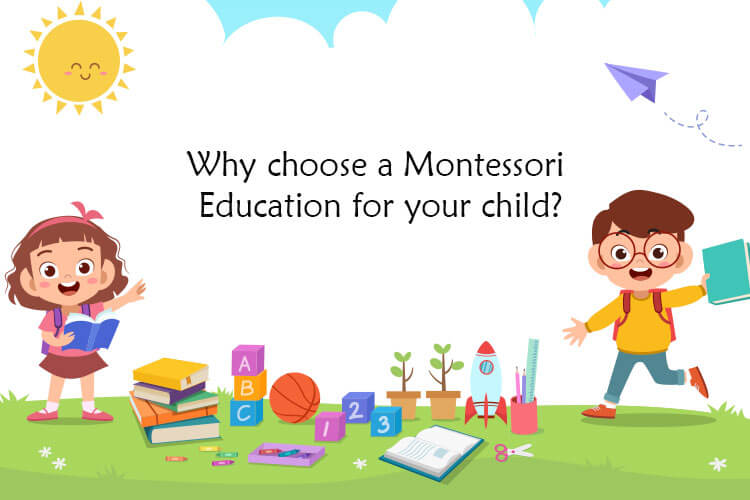
Why choose the Montessori method: Unique Approach to Education
December 18, 2023
The Montessori method aims to create a nurturing environment that supports each child’s individual development, fostering independence, self-confidence, and a lifelong love for learning.
Montessori education stands out for several reasons:
- Recognition of Individuality: Each child is valued as a unique individual. The Montessori method of education acknowledges that children have diverse learning styles and allows them to progress at their own pace, guided by teachers and individualized learning plans.
- Early Development of Skills: Starting at an early age, Montessori focuses on nurturing order, concentration, and independence. The intentional design of classrooms, materials, and routines supports the development of self-regulation, empowering children from toddlers to adolescents to take charge of their education.
- Close-knit Community: The multi-age classroom structure mirrors a family setup, fostering a close, caring community. Older students serve as mentors and role models, creating a supportive environment where younger children gain confidence and teachers model respect, kindness, and conflict resolution.
- Freedom within Limits: Montessori students enjoy freedom within defined limits. Within parameters set by teachers and the community, students actively participate in deciding their focus of learning, promoting a sense of responsibility and autonomy.
- Active Seekers of Knowledge: The Montessori method of education encourages students to become active seekers of knowledge. Teachers provide environments that allow students the freedom and tools to pursue answers to their questions, fostering a love for learning that lasts a lifetime.
- Self-correction and Assessment: The Montessori approach integrates self-correction and self-assessment. As students mature, they learn to critically evaluate their work, recognize, correct, and learn from errors, promoting a sense of accountability and continuous improvement.
- Support for Social-Emotional Skills: Backed by contemporary research, Montessori education is shown to enhance social-emotional skills. Children in Montessori classrooms exhibit stronger social-emotional competencies compared to those in traditional environments, reinforcing the effectiveness of the century-old Montessori Method.


